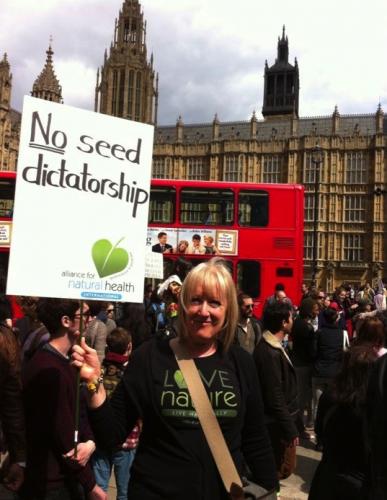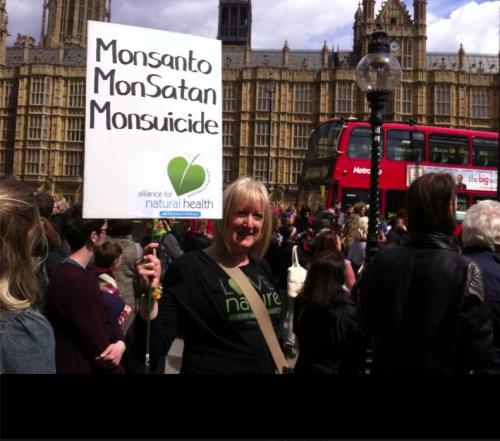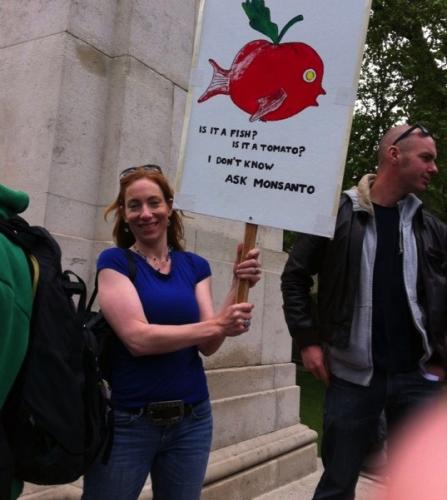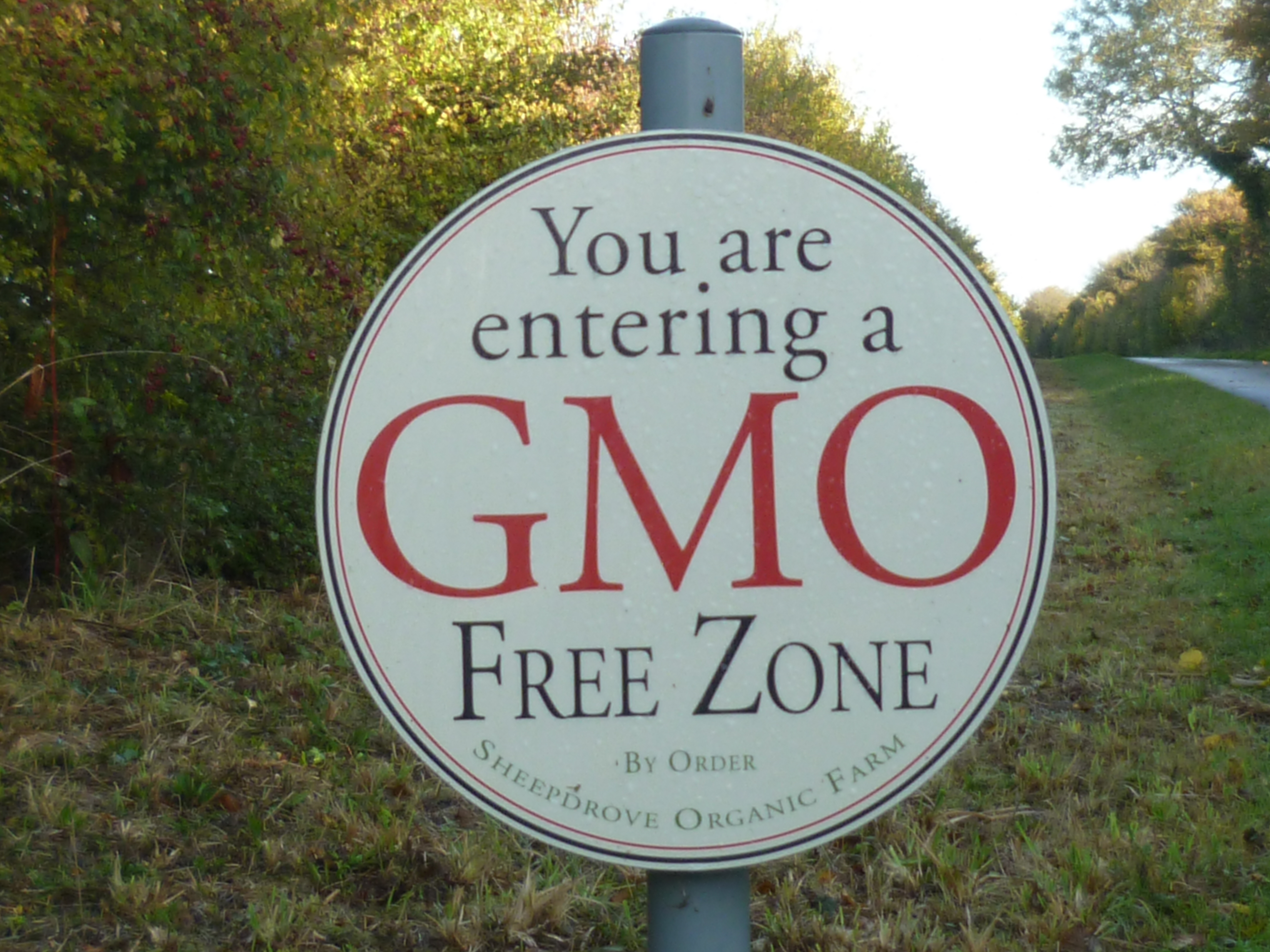Content Sections
The mainstream media are awash with reports of a Monsanto retreat over genetically modified (GM) food and feed crops in the European Union (EU). Does this signal the 'tipping point' that will see the end of the GM seed and crop industry – or should campaigners remain on high alert?
Fan-Taz-tic news – or Monsanto PR stunt?
A report in Berlin newspaper Tageszeitung (Taz) (see English translation) broke the shock news on 31st May of an apparent Monsanto retreat in Europe. However, it may not be time to bring out the bunting just yet. Despite Taz quoting a Monsanto spokesperson, Monsanto’s corporate website says only that, “Europe's going to make up its own mind in its own time”, quoting a 2009 interview with Monsanto boss Hugh Grant.
That hasn't prevented word of the 'retreat' from quickly spreading far and wide. Like F William Engdahl, author of Seeds of Destruction: The Hidden Agenda of Genetic Manipulation, we suspect that Monsanto is pulling a fast one. Engdahl points out that a translation of an article on Monsanto's German website includes the sentence, ”Right now the media is flooded with reports that Monsanto has stopped the marketing of GMO seeds in Germany and the EU. That is not correct…”. But, because of the widespread media coverage of the Taz story, “The message has been delivered that Monsanto has given up its EU effort on proliferating its GMO seeds. The timing of the TAZ interview is suggestive of what seems to be a carefully orchestrated Monsanto PR deception campaign,” timed to coincide with the recent worldwide March Against Monsanto.
Global Monsanto backlash
On 25th May, over 2 million protesters in more than 50 countries worldwide assembled in a powerful display of grassroots anger and disgust over the actions of 'the world's worst company'. The group was originally started as a Facebook page by a mother, Tami Canal, who wanted to make a better world for her children. Predictably, there were limited reports in the mainstream press.

Yvonne England representing ANH-Intl at 'March Against Monsanto' London event
ANH-Intl was represented by our Practitioner Liaison, Yvonne England, who said that she felt very humbled to be part of the global event. “There was a family atmosphere, and everyone was friendly and good humoured,” recalls Yvonne. “But at the same time, there were strong feelings and much passion for the protest”. Bianca Jagger, long-time human rights and environmental campaigner — as well as ANH supporter — was one of several speakers at Parliament Square, London. Afterwards, many of the protesters, not content with a static event, went on an impromptu march around London, which culminated in more speeches at the US Embassy in Grosvenor Square.

Protesters in Parliament Square, London, for 'March Against Monsanto'
March Against Monsanto promises that 'This is only the beginning’. There will be another major worldwide march on May 24th 2014, and an event to coincide with World Food Day on October 12th 2013.
Anti-GMO campaigners must remain vigilant, both in the EU and elsewhere. It seems highly unlikely that Monsanto is really waving the white flag in Europe, given past history, all that's at stake and the company's EU investments to date. Equally, given past form, it is highly unlikely that the Taz news report occurred independently of Monsanto.
Guess who's involved in a new GM wheat scandal?
All of this comes hot on the heels of a major alert around possible contamination of US wheat exports by illegal GM wheat, discovered in a field in Oregon, USA. The rogue wheat originated from a Monsanto field trial that ended in 2005. In 2010, the industry view remained that the world would not be ready for GM wheat for at least another 10 years. This latest GM scandal is having significant trade repercussions, particularly in the Far East, while the European Commission (EC) is assuring its citizens that it is testing US wheat imports for the presence of GMOs.
UK government as gung-ho as ever
Recent months have seen unprecedented US campaigning for labelling of GMO foods, along with demands to repeal what has been dubbed the 'Monsanto Protection Act' or 'Monsanto rider', signed in by the US government earlier this year.
The majority of European citizens have consistently rejected GM, and many of their national governments have belatedly joined them. Eight EU Member States have now imposed bans on the cultivation of GM crops approved as safe by the European Food Safety Authority (EFSA): Austria, France, Germany, Hungary, Luxembourg, Greece, Bulgaria and Poland. Italy is now also calling for an EU-wide ban on cultivation of Monsanto’s MON 810 maize. Spain, Portugal and, to a lesser extent, the Czech Republic and Romania continue to cultivate GM crops. None are commercially grown in the UK, but the government chief scientist continues to proffer, with little or no convincing evidence, that the case for GM crops is becoming stronger. The UK environment secretary, Owen Paterson, is trying to overturn public skepticism and speed up the EC's approval process for GM crops.
Enter the EC and SmartStax
Against this backdrop of GMO rejection, the EC may now be busy planning to fast-track approval for the Monsanto/Dow AgroSciences 'stacked' multi-toxin GM SmartStax corn, for use in food and feed. The non-governmental organisation Testbiotech has warned that SmartStax may already be present among corn imports from the US, where it is commonplace. More worryingly, Testbiotech has already revealed, "Alarming deficiencies in risk evaluations performed by both industry and EU regulators," and "insufficient assessment of risks to human and animal health". Testbiotech is demanding that authorisation is withheld until new, comprehensive risk assessment is carried out, and has set up an email alert to enable European citizens to take action.
Deliberate GM contamination?
The GM wheat and SmartStax sagas beg the question: how much of this is deliberate, in order to force acceptance of the ‘inevitable’ march of GM technology?
The escape of engineered genes and their incorporation into wild plants has long been one of the main concerns among ecologists about the ever-broadening adoption of GMO crops. Recent news reports remind us that this is far from a theoretical concern, and that it is nigh on impossible to avoid unauthorised escape of transgenic products such as maize (corn) and rice even from experimental field trials. A study by Norman Ellstrand PhD from the Center for Conservation Biology, University of California, has reportedly identified 22 cases of transgene introgression over the past two decades. In 2003, University of California, Berkeley scientists discovered that DNA from GM corn had entered local crops in Mexico.
All in all, there is no meaningful evidence of any let up in the worldwide push for GM, whatever Monsanto might like you to hear. And while the surge in global recognition of the issue, as represented by the March Against Monsanto, is enormously welcome, now is not the time for campaigners to let down their guard.
Call to action
- Share this story on social media and educate others as much as possible on GMOs
- Buy local, organic, unprocessed food as much as possible. This is a list of typical processed US food, which is likely to contain GMO ingredients. Avoid it!
- Let all your political representatives be in no doubt about your concerns about GMOs in processed foods and animal feed, as well as about the increasing pressure to conduct field trials and cultivate GM crops
- Watch out for ‘March Against Monsanto’ and other events, or organise your own
- Please sign and share the Avaaz petition calling for a worldwide ban on GMOs
- Support ANH and our Say NO to GM campaign
Gallery of photos from the March Against Monsanto London event










Comments
your voice counts
There are currently no comments on this post.
Your voice counts
We welcome your comments and are very interested in your point of view, but we ask that you keep them relevant to the article, that they be civil and without commercial links. All comments are moderated prior to being published. We reserve the right to edit or not publish comments that we consider abusive or offensive.
There is extra content here from a third party provider. You will be unable to see this content unless you agree to allow Content Cookies. Cookie Preferences